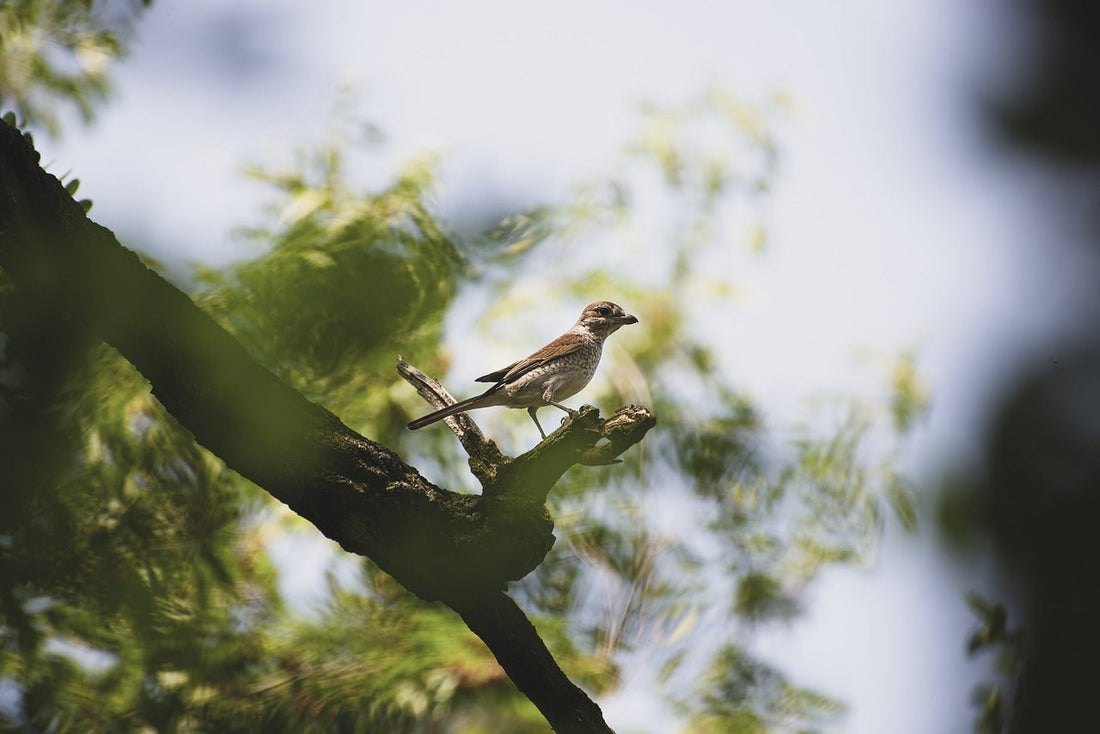
Making gardens great spaces for nature
Share
According to the World Wildlife Fund’s (WWF) Living Planet Report - a report that measures population trends in thousands of vertebrate species - “vertebrate species populations across the globe are, on average, about half the size they were 40 years ago.”
A decline of around 52% was between 1970 and 2010. The WWF Living Planet Index® is produced by gathering a goliath amount of information and trends in 10,380 populations of 3,038 vertebrates (mammal, bird, reptile, amphibian and fish species).
In the bird world we are used to hearing about population declines - the cockney House Sparrow being the classic example; dropping by as much as 71% between 1977 and 2008 and leaving scientists to ponder why that’s the case (The House Sparrow is now on the Red List as it is considered to be of the highest conservation priority). The shocking decline of countryside birds has been covered by journalists and wildlife charities for a number of years. Further back in history, Rachel Carson’s (American Biologist) Silent Spring warned us back in 1962 that we would risk catastrophic changes – changes that may be irreversible – unless we changed the way we consumed nature’s capital. (Carson’s exposure of the chemical DDT (dichlorodiphenyltrichloroethane) lead to public outcry and the eventual banning of its use in agriculture in 1972 – but not before chemical companies had slurred her name and brandished her as a communist sympathiser).
It is sombre to read that so much of nature has suffered from humanity’s overconsumption. If we continue on our current path the outcome is looking bleak according to the Living Planet Index(R) as, “we may need 1.5 Earths to meet the demands humanity makes on nature each year. These demands include the renewable resources we consume for food, fuel and fibre, the land we build on, and the forests we need to absorb our carbon emissions.”
Whichever way we look at it, humanity’s demands are exceeding the availability of the Earth’s natural capital. We as living organisms rely on non-living components to make our ecosystem work – we need air, water and good quality soil. Any action that affects the quality of these three components affects nature and our health.
The Living Planet Report suggests that we need a few things to change:
- First, we need unity around a common cause. Public, private and civil society sectors need to pull together in a bold and coordinated effort
- Second, we need leadership for change; sitting on the bench waiting for someone else to make the first move doesn’t work.
We really are all connected – for better or for worse.
The good news is that we’re already pulling together as a bird-feeding community and that our common cause – to feed the birds and create safe space for nature - is a coordinated effort. We are making our gardens more wildlife friendly, together. This coordinated effort has become much more than a nice to have – protecting nature is not a luxury. Indeed we (Haith's) are moved when we read about the lengths our community go to every day in order to provide food, shelter and water 365 days a year.
We (Haith’s) want to step forward and cover point two (above). We want to lead the way by taking actions to put back what we’ve taken out:
- We will continue to be landfill free
- We will continue to do more to help protect the environment
- We will continue to focus on the safety of our bird diets
- We will continue to keep prices competitive
Making gardens great spaces for nature is what we all do as a community. Together we can be more determined and more effective at putting things right. Together we can provide well-managed spaces which interlock to create wildlife corridors - offering safety and supplementary food and water. Together we can (and will) do more.
Thank you for making gardens great spaces for nature.
Written by Simon H. King
